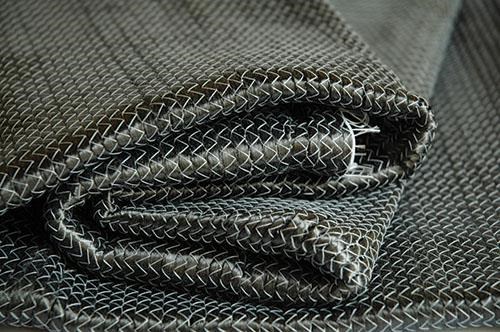Large-tow carbon fiber's popularity speaks volumes
Cytec's decision this week to seek an acrylic supply for large-tow carbon fiber manufacturing is only the latest effort by a carbon fiber supplier to position itself to serve the automotive industry.

The big news in composites this week came out of carbon fiber and resin supplier Cytec Industries, which announced on July 8 that is establishing a business relationship with German acrylic producer Dralon GmbH to evaluate the possibility of manufacturing large-tow, industrial-grade carbon fiber. Cytec CEO Shane Fleming cited the automotive industry's lightweighting efforts as the principle driver of the decision.
Cytec has a long history with aerospace-grade carbon fiber, and through Umeco (ACG), which Cytec acquired two years ago, it has a long history with automotive composites. Now, with the decision to work with Dralon to develop acrylic for what is assumed to be a low-cost precursor for large-tow carbon fiber, Cytec joins a growing list of carbon fiber manufacturers who, apparently, see real potential in automotive composites.
Indeed, SGL Group, as has been well documented, created in 2010 a joint venture with BMW Group for the supply of large-tow carbon fiber used in the all-electric BMW i3. And in late 2013 the world's largest supplier of carbon fiber, Toray, bought Zoltek, which for many years was the world's largest supplier of large-tow carbon fiber and occasionally derided for the niche it occupied in the composites market.
In fact, it seems that almost every major supplier of carbon fiber is either seeking or working to develop a lower-cost precursor for the manufacture of large-tow carbon fiber for automotive and industrial applications. The poster child for this effort is U.S.-based Oak Ridge National Labs, which has its own carbon fiber pilot line and is evaluating a host of alternate precursors.
Despite all of this activity, it's hard to say definitively that carbon fiber and the automotive industry have, finally, married for good. Despite the efforts of BMW and Volkswagen to integrate carbon fiber into their vehicles, there remains at other automotive OEMs much skepticism about the utility and sustainabilty of carbon fiber. Ultimately, however, it will be the consumer who decides. If car-buyers demonstrate a preference for the benefits carbon fiber offers, then we might yet see the long-awaited marriage of composites with cars.
Related Content
-
Low-cost, efficient CFRP anisogrid lattice structures
CIRA uses patented parallel winding, dry fiber, silicone tooling and resin infusion to cut labor for lightweight, heavily loaded space applications.
-
Combining multifunctional thermoplastic composites, additive manufacturing for next-gen airframe structures
The DOMMINIO project combines AFP with 3D printed gyroid cores, embedded SHM sensors and smart materials for induction-driven disassembly of parts at end of life.
-
Carbon fiber, bionic design achieve peak performance in race-ready production vehicle
Porsche worked with Action Composites to design and manufacture an innovative carbon fiber safety cage option to lightweight one of its series race vehicles, built in a one-shot compression molding process.
















